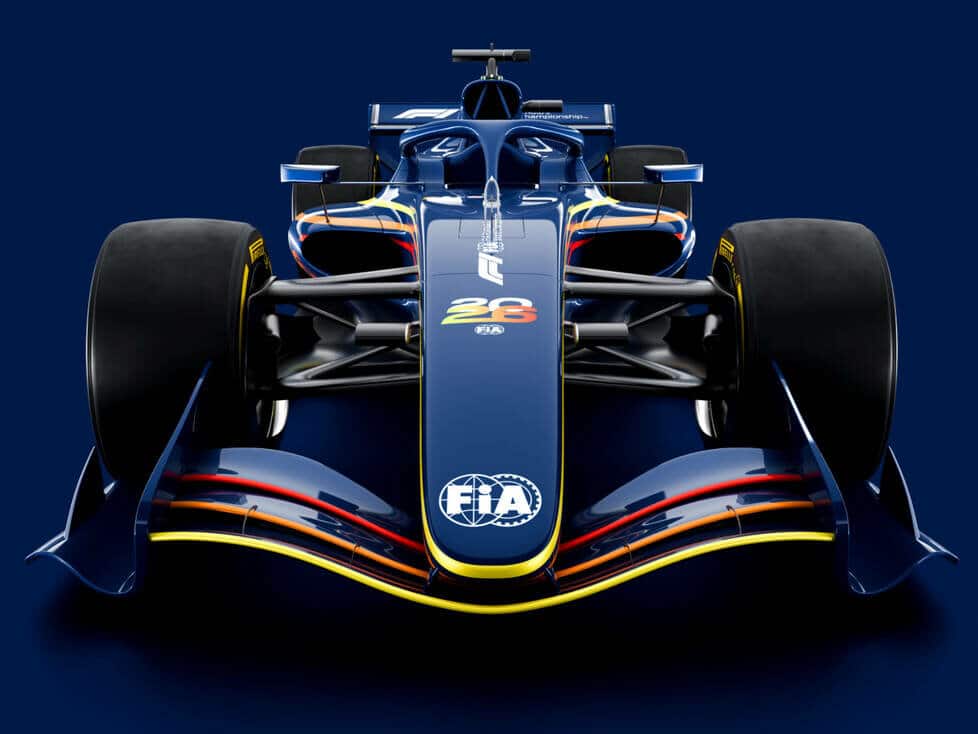After the push comes the cuddle course: The FIA expressly signals its willingness to talk to the teams following criticism of the rules in the person of Nikolas Tombazis
The initial outcry over the new Formula 1 rules presented by the FIA for 2026 has died down, and it feels like everyone of note in the paddock has given their opinion – now the world governing body wants to enter the next round of talks with the teams and work on fine-tuning the ideas on show
The FIA has certainly heard the criticism and concerns on various topics – some of which were quite strong and very targeted: While record Grand Prix starter Fernando Alonso, for example, criticized the “lack of freedom” in the regulations, McLaren team boss Andrea Stella, for example, stated: “The cars are not fast enough in the corners and too fast on the straights.”
However, it is important to note that the rules presented in the run-up to the Canadian Grand Prix are not finalized decisions, but a draft – this must first be waved through by the FIA’s Word Motor Sport Council next week, then the next hurdle is ratification at the end of June.
Criticism received, talks welcome
This is why the authority is making it clear that it is important for it to seek dialog with the teams as part of the next steps in order to jointly drive forward the search for improvements or necessary changes. Nikolas Tombazis, the FIA’s single-seater director, explains: “We are not yet in the finalization phase for the regulations, we still need to find and discuss some things with the teams.”
In any case, the critical initial feedback has been received by the sports authority: “We are aware of the concerns regarding the downforce of the cars, or also because of the high speeds on the straights – but these are things that we classify as subtleties that still have to take place. “
Tombazis clarifies: “Between the end of the month, when these rules can hopefully be published, and the start of 2025, when the teams start aerodynamic development because they can’t start earlier, we expect a lot of additional work to be done jointly by the teams, the FOM and everyone else. “
Tombazis: Cars will not be slower than Formula 2
Tombazis also shares the concerns that the cars could be too slow in the corners according to the current state of the rules: “These fears are justified, because people are taking a snapshot of how the rules are on a piece of paper right now and making comments based on what they see there,” the Greek nevertheless tries to classify them accurately.
However, the FIA man assures us that he has no problem with the criticism: “I have no concerns about these things that people have raised, but of course we expect a few more steps to be taken in terms of performance.”
Tombazis explains: “This is precisely why we deliberately set the bar relatively low at the start, so that we can build on this in cooperation with the teams. Increasing the downforce of these cars is actually quite easy. “
He understands the concerned comments, “but I don’t think anyone needs to be worried that these cars won’t be faster than Formula 2 or anything like that. I think that will be 100 percent solved when we get to the final regulations. “
Less leeway with the engine, but still a lot feasible
The technician also has a clear opinion on the new engine rules, with the split between 50 percent electric power and 50 percent combustion engine power. Among other things, there have recently been calls for the proportion generated by the combustion engine to be increased again in order to increase speed, for example by not regulating the fuel flow as much.
“When it comes to the power unit, the rule makers naturally have a slightly different point of view, because we are actually subject to the decisions made due to the engine rules,” says Tombazis, who nevertheless signals a willingness to talk if all manufacturers play along: there will therefore be no “unilateral” advances, but conversely no sacred cows either.
“Overall, there is a very good atmosphere as far as cooperation is concerned,” Tombazis reassures us and, after the FIA’s push forward with the rules, is back on a cuddly course: “So if there have to be adjustments (to the engine), I am quite confident that the engine manufacturers will help and cooperate. “





